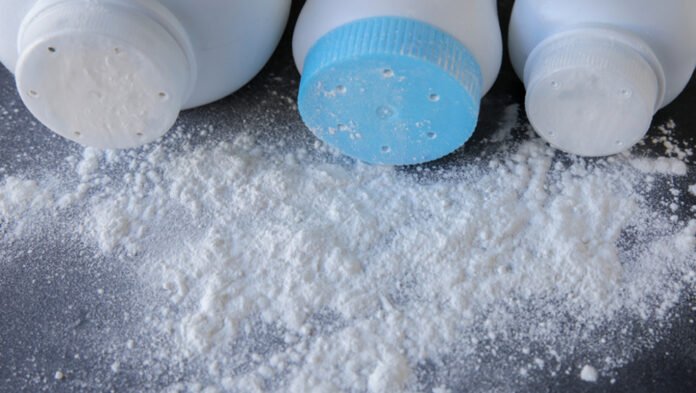Talc is an essential mineral with a wide range of industrial applications, from cosmetics to paper manufacturing and agriculture. However, the selection of high-quality talc powder is crucial to ensure its purity, performance, and safety. Whether used in pharmaceuticals, plastics, or coatings, the presence of impurities can significantly impact the final product’s quality. This guide will explore the key factors that determine the purity and safety of talc powder, helping industries make informed choices when sourcing this essential mineral.
Understanding Talc Purity: Why It Matters?
The purity of talc powder directly affects its usability in different industries. High-quality talc is free from harmful contaminants such as asbestos, heavy metals, and microbial impurities, making it safe for both industrial and consumer applications. Purity also impacts talc’s physical and chemical properties, influencing factors such as brightness, softness, and absorption capacity.
Industries that require high-purity talc, such as pharmaceuticals and cosmetics, have strict regulatory standards to ensure consumer safety. Any trace of asbestos in talc can pose significant health risks, making thorough quality checks an essential part of the selection process.
Key Factors in Selecting High-Purity Talc Powder
- Source of the Talc
The geological origin of talc plays a crucial role in determining its purity. High-quality deposits are found in select locations where the mineral is naturally free from contaminants. Understanding the mine’s location and extraction methods ensures that the talc powder meets industry standards. - Mineral Composition and Chemical Purity
Analyzing the mineral composition of talc helps identify the presence of impurities. High-purity talc primarily consists of hydrated magnesium silicate, with minimal traces of iron, aluminum, and other minerals. Consistent chemical purity enhances talc’s functionality in various applications. - Particle Size and Distribution
The fineness of talc powder affects its application in different industries. While ultra-fine talc is preferred in cosmetics and pharmaceuticals for its smooth texture, coarser grades are suitable for plastics and rubber. The right particle size ensures optimal performance in its intended use. - Absence of Asbestos and Heavy Metals
Ensuring talc powder is free from asbestos contamination is critical for consumer safety. Regulatory bodies such as the FDA and European Chemicals Agency have set strict guidelines for asbestos-free talc. Advanced testing methods, including X-ray diffraction (XRD) and polarized light microscopy, help verify talc’s purity. - Moisture and pH Levels
Moisture content in talc powder influences its storage stability and usability. Low moisture levels prevent clumping, ensuring a smooth and consistent texture. Additionally, talc’s pH level should be neutral to avoid reactivity with other materials in industrial applications. - Brightness and Whiteness
Brightness is an important quality parameter, especially in industries like paper manufacturing and paints. High-brightness talc enhances the opacity and brightness of the final product, making it a crucial factor in selection. - Regulatory Compliance and Certifications
Choosing a supplier that complies with international safety and quality standards is essential. Certifications such as ISO, REACH compliance, and FDA approvals ensure that the talc powder meets the highest safety and purity requirements.
Talc Powder in Industry-Specific Applications
1. Talc in the Paper Industry
Talc is widely used in the paper industry for its ability to improve printability, reduce pitch deposits, and enhance smoothness. As a leading Paper Grade Talc Powder Manufacturer in India, Anand Talc ensures that its talc products meet the highest industry standards, offering superior brightness and smoothness for paper production.
2. Talc in Agriculture
In the agricultural sector, talc is used as an anti-caking agent, carrier for pesticides, and soil conditioner. High-purity talc ensures that crops remain free from harmful residues while enhancing soil properties. Anand Talc, a trusted Agriculture Industry Talc Powder Manufacturer in India, provides high-quality talc products tailored for agricultural applications.
How to Ensure Safety When Using Talc Powder?
- Source from a Reputable Supplier
Working with a trusted Talc Powder Exporter in India ensures that the talc meets industry standards for purity and safety. A reputable supplier provides transparency in sourcing, manufacturing, and quality control. - Verify Asbestos-Free Certification
Always check for third-party lab testing and certification confirming that the talc powder is asbestos-free. Independent verification ensures compliance with global safety regulations. - Ensure Proper Storage Conditions
Storing talc powder in a dry, controlled environment prevents contamination and maintains its quality. Proper storage also minimizes the risk of microbial growth and moisture absorption. - Use Industry-Specific Grades
Different applications require specific talc grades. Using the right grade enhances performance while ensuring compatibility with industry processes.
Conclusion
Selecting the right talc powder requires careful consideration of purity, safety, and industry-specific requirements. Ensuring asbestos-free certification, verifying chemical composition, and sourcing from a trusted supplier are essential steps in making the right choice. With a commitment to quality, Anand Talc stands out as a reliable partner for industries seeking high-purity talc solutions.



